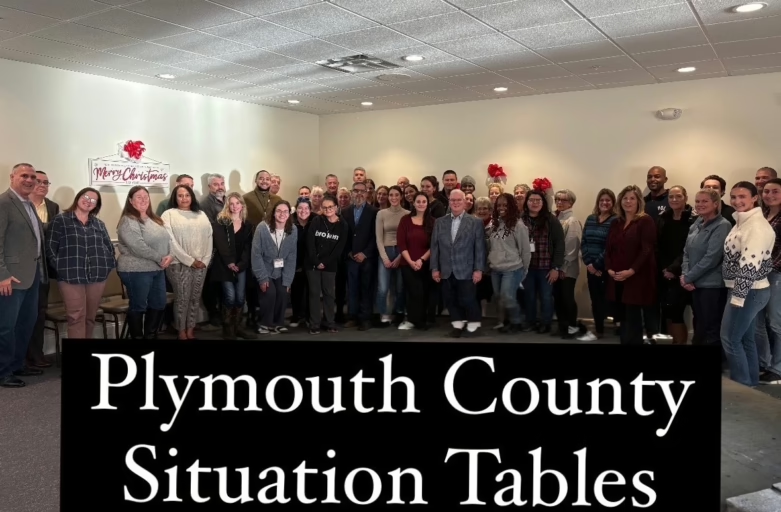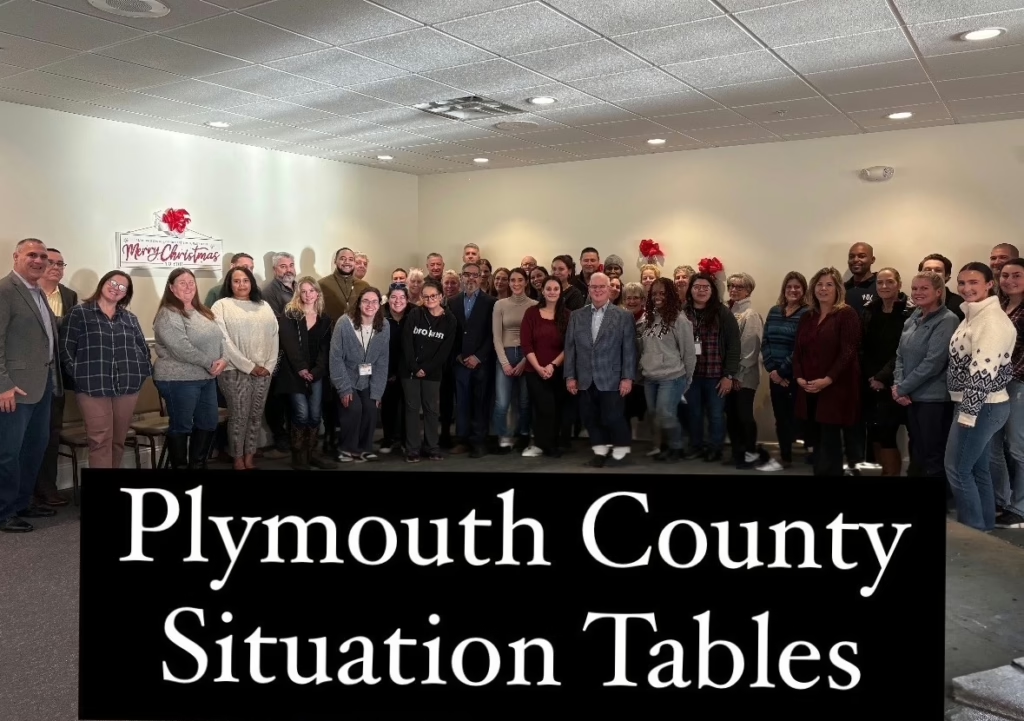
Participants of the Situation Table Training delivered by Cordata’s O2SL & QRT National in Plymouth. (Photo courtesy Cordata’s O2SL & QRT National)
PLYMOUTH — Cordata’s Operation 2 Save Lives (O2SL) & QRT National recently delivered a two-day Situation Table Training session in Plymouth.
On Dec. 17 and 18, 60 attendees representing 27 communities across Plymouth County were trained at the American Legion Post 40 in Plymouth on the Situation Table model, a strategy that facilitates multi-agency interventions for those at risk of experiencing a crisis.
Cordata’s O2SL & QRT National Senior Community Engagement Specialist Michael Botieri, Law Enforcement Executive Walter Sweeney Jr., and Community Engagement Specialist Dan Cortez of the Chelsea Police Department delivered the training.
The training in Plymouth was designed to relaunch the four Situation Tables in Plymouth County — Plymouth, Wareham, Higham and Brockton — to address key community challenges through interagency collaboration. The goal is to relaunch all four Situation Tables by the third week of January.
On the first day of the training, participants conducted community mapping exercises to identify the challenges and benefits of collaboration. They also participated in breakout groups to identify strengths and barriers. Five mock Situation Table scenarios were provided on the second day to demonstrate risk tracking and intervention planning.
The attendees in Plymouth described their training experience as informative, insightful, inspiring, engaging, outstanding, eye-opening, reinvigorating, and excellent.
The training focused on addressing staff turnover in Plymouth County and reintroducing the process of engaging at-risk individuals through collaborative intervention. A Situation Table is a unique, risk-based rapid triage model that brings together multiple human service providers to address situations where individuals and families face a specific Acutely Elevated Risk (AER) threshold. Situation tables comprise representatives from public safety agencies, public health agencies, service providers, and other community partners.
“We were thrilled to be back in Plymouth County to help relaunch four Situation Tables,” Senior Community Engagement Specialist Botieri said. “The participation and engagement were tremendous during the training, and the feedback we received was that the training was highly useful and effective. We look forward to seeing Plymouth, Wareham, Higham, and Brockton relaunch their Situation Tables in the coming weeks.”
Cordata’s O2SL & QRT National thank the local project sponsor, Plymouth County Outreach, for its hospitality during the training and assistance with scheduling and preparation.
“Strong partnerships and collaboration have always been the foundation of our success,” said Victoria Butler, Plymouth County Outreach executive director. “We were thrilled to have so many representatives from various sectors coming together with the common goal of reducing risk in our communities and are looking forward to seeing the positive impact successful situations have in their communities.”
Through the model, an individual or family at AER can refer to the Situation Table to consider possible outreach and engagement before a crisis occurs. The table participants will collaborate and discuss the identified risk factors and potential services. When a consensus is reached, the table will identify a team of agencies to help locate the individual or family and connect them to services.
The Situation Table model was developed in Canada by Global Network for Community Safety, a Canadian-based firm that focuses on innovations to improve community safety and well-being across Canada and in the U.S. Through a partnership between Cordata’s O2SL & QRT National and Global Network, the organizations work cross-border to collectively provide multi-agency community responses to address issues of marginalization, for pre-crisis identification and crisis interventions, while creating pathways to care and support. Their combined expertise and suite of services — based on internationally recognized best past practices — help provide communities with tailored responses to meet their current needs and the ability to rapidly adjust to an evolving landscape of risk factors, including those around substance use disorders, mental health disorders, and related social health issues.
More than 150 Situation Tables have been launched throughout Canada and the United States.
###
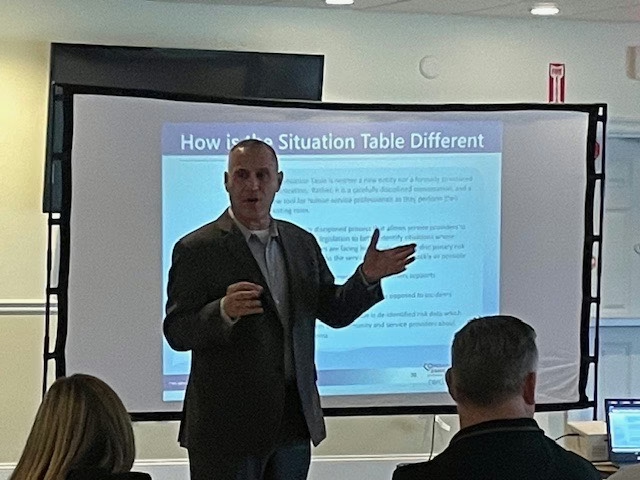
Cordata’s O2SL & QRT National Senior Community Engagement Specialist Michael Botieri presents during a two-day Situation Table Training session in Plymouth. (Photo courtesy Cordata’s O2SL & QRT National)
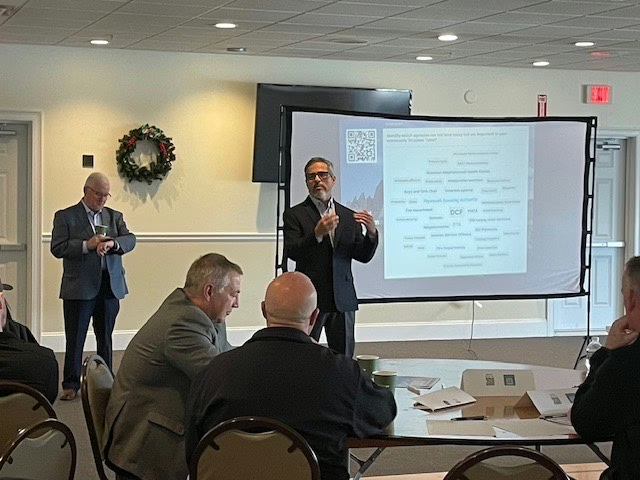
Community Engagement Specialist Dan Cortez of the Chelsea Police Department presents during a two-day Situation Table Training session delivered by Cordata’s O2SL & QRT National in Plymouth. (Photo courtesy Cordata’s O2SL & QRT National)
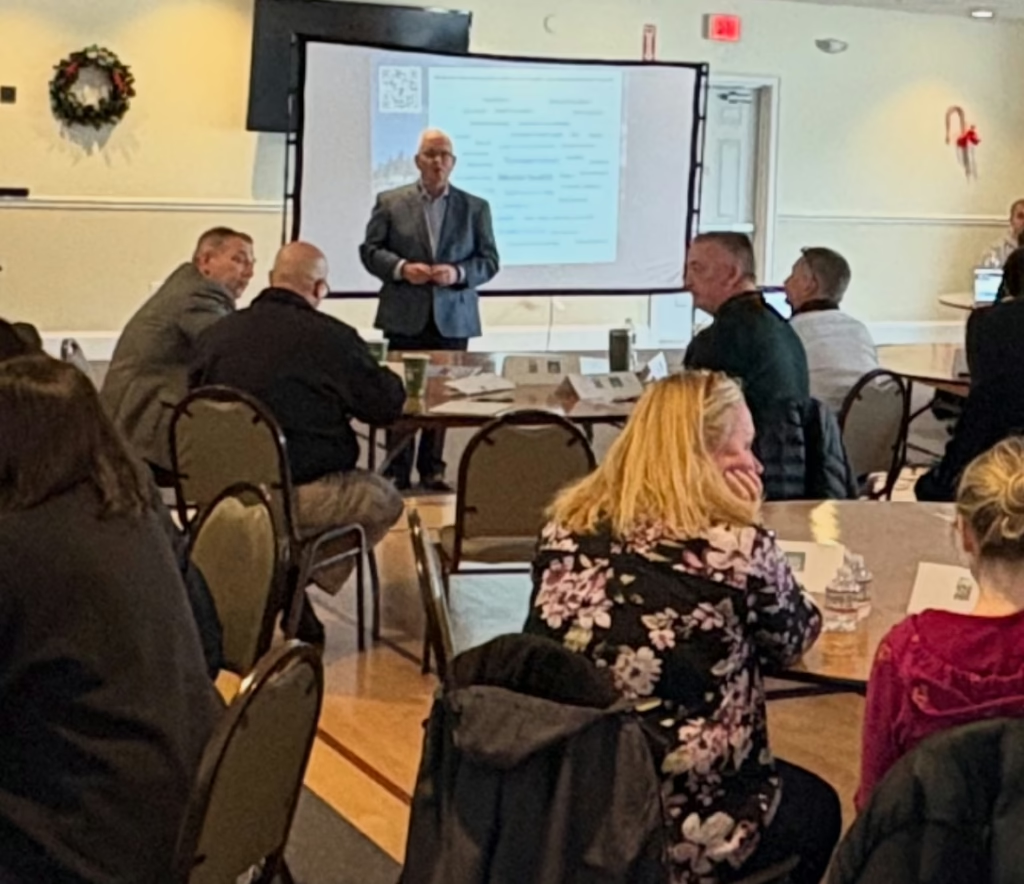
Law Enforcement Executive Walter Sweeney Jr. presents during a two-day Situation Table Training session delivered by Cordata’s O2SL & QRT National in Plymouth. (Photo courtesy Cordata’s O2SL & QRT National)

